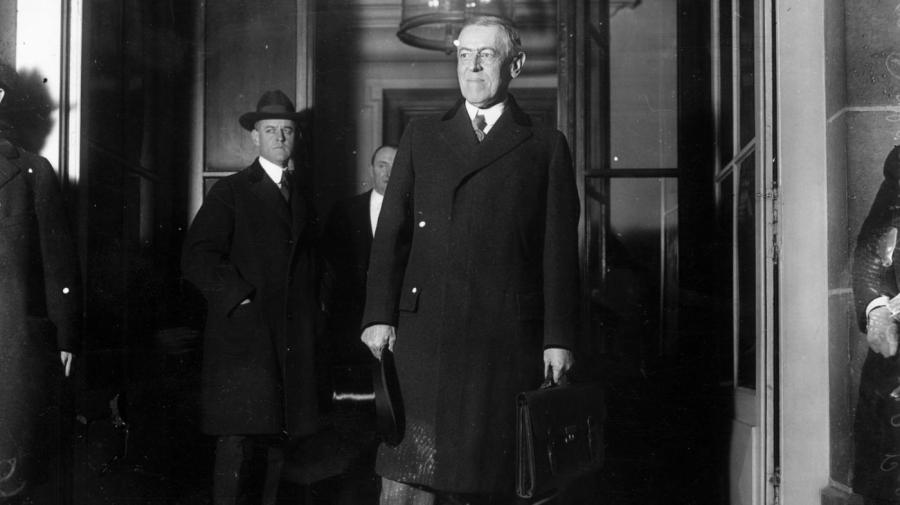Why Didn’t the United States Join the League of Nations?

The United States did not join the League of Nations because of opposition in the press and the U.S. Senate. Leading the opposition were Senators Henry Cabot Lodge and William Borah.
The League of Nations was an American idea championed by President Woodrow Wilson during the negotiations leading up to the Treaty of Versailles, the agreement that officially ended World War I. The organization’s goal was the creation of an international body that would help preserve peace and punish those who started wars. However, many Americans were concerned. They especially feared the League’s 10th Article. They believed that this article allowed the League of Nations to force the United States to commit its military and economic power in places that were not beneficial to the country. They also wanted to stick with the country’s traditional aversion to international entanglements. Wilson argued that the United States’ veto power over the League’s agreements made such fears unnecessary. Though there was room for agreement between the two sides, Senator Lodge and President Wilson had a bitter mutual antipathy, and Wilson had a massive stroke in 1919 that limited his ability to negotiate. The treaty languished for months until the Senate voted it down 49-35 in 1920.





